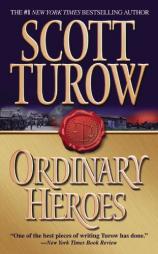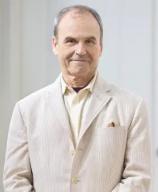Reading Group Guide
Discussion Questions
Ordinary Heroes

1. Discuss the effect of the V-mails on the book's opening pages. What was it like to read David Dubin's eyewitness account through the "artifacts" that comprise much of the rest of the book? Do father and son have different perceptions of life in Ordinary Heroes?
2. In chapter two, Dubin writes about his reasons for enlisting. What were his true motivations in going to war?
3. What are Dubin's initial impressions of Staff Sergeant Bidwell? How does Biddy's perception of racism compare to Dubin's perception of it, both before and after Biddy makes his revelations about racial passing? What common ground do the two men share?
4. How did your impressions of Robert Martin shift throughout the novel? Does Brigadier General Teedle give an accurate description of him before Dubin meets him for the first time?
5. How would you characterize Stewart's meetings with Bear Leach? How would you have handled Stewart's requests if you had been in Justice Leach's position?
6. What did you make of Corporal Bonner's comments about Teedle's sexuality in chapter eight? What would be the result of similar rumors in today's U.S. military?
7. Is Gita's allure purely based on sex appeal? How do her attitudes toward men differ from her mother's?
8. In chapter ten, Gita reveals that her mother was killed for harboring Jews. How does Dubin respond to her after this scene? What does it take for him to finally trust her?
9. Chapter thirteen ends with Leach's recollection that Dubin feared his children would learn the truth about him. To what extent is it necessary to keep secrets from our descendants? To what extent is this harmful? Do you agree with the Talmud's aphorism, mentioned in the novel's first chapter, that a father should draw his son close with one hand and push him away with the other?
10. How do the brutal December battles affect Dubin? How does he reconcile his roles as legal assistant and soldier after these scenes? What does he mean when he tells Grace he regrets being a "soldier in earnest," in his letter to her at the end of chapter twenty-seven?
11. What did it take to transform Gita Lodz into Gilda/Gella Rosner? When did it become her dream to have an ordinary life?
12. Was it unpatriotic of Martin to try to keep not only the Soviets but also the United States from securing knowledge of Germany's weapons of mass destruction? Were Martin's actions rational? Would you have let him escape?
13. What is your understanding of the relationship between Gita and Martin? What does war teach Dubin about love? Would he have had much chance of a good marriage with Grace?
14. How do Stewart's findings affect the dynamic of his family --- his relationships with his sister and mother, and the memory of David Dubin?
15. Scott Turow writes that although Ordinary Heroes is completely a work of his imagination, the initial inspiration came from his father, who was a field surgeon in Europe during World War II. What legacies of war exist in your family? What stories of heroism and mystery are part of your family history?
16. What similarities and differences exist between Ordinary Heroes and Turow's other novels? From Turow's point of view, what are the makings of a hero?
Ordinary Heroes
- Publication Date: October 1, 2006
- Genres: Fiction
- Mass Market Paperback: 512 pages
- Publisher: Grand Central Publishing
- ISBN-10: 0446617482
- ISBN-13: 9780446617482








